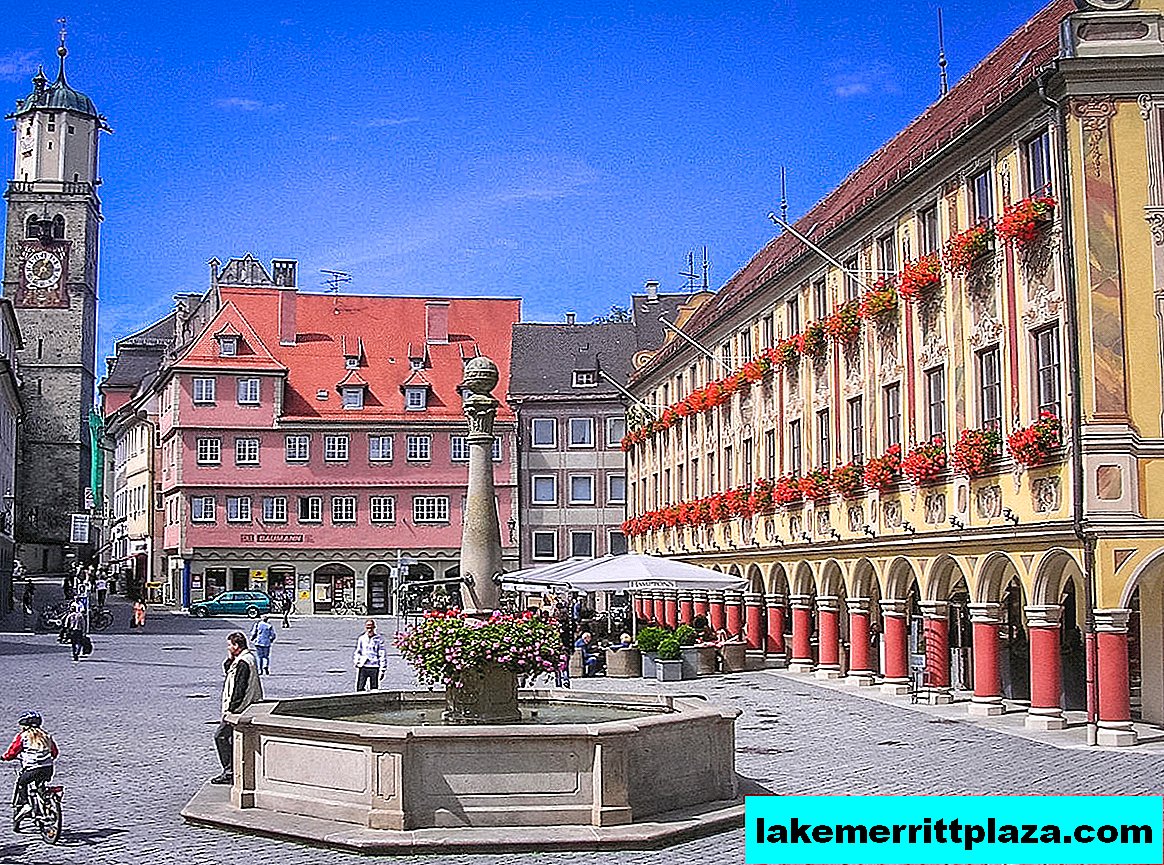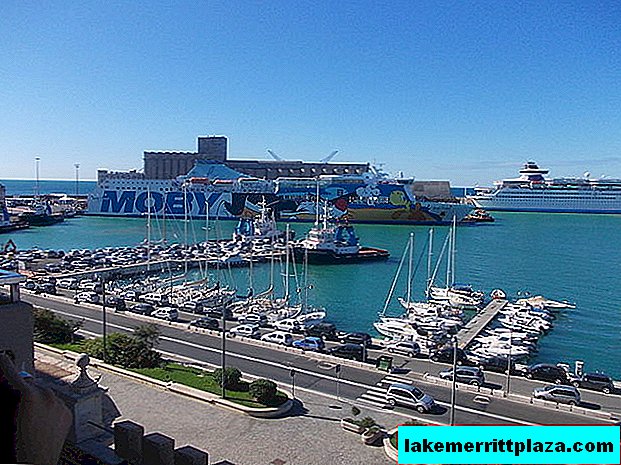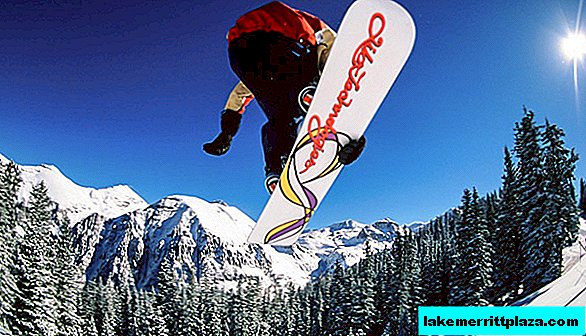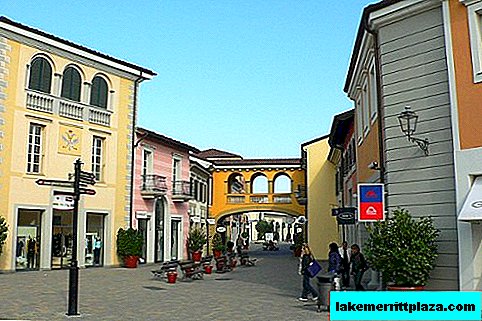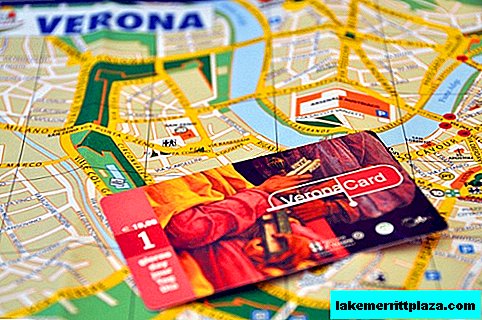We should not perceive language as a dictionary, a list of grammatical rules, structures, although this of course takes place and it is difficult to do without it. Nevertheless, all this can be reduced to an absolutely working minimum. Well, it would seem - words. There are thousands and thousands of words in every language, but there are statistics that say that 90 percent of spoken language in any language is in 300-400 words. Agree it is not so much, but these words work obeying special rules. In most cases, some basic language is enough for us to feel comfortable. A feeling of comfort and harmony in the environment of this language.
The structure of the language is inseparable from the way in which Italians, people who speak Italian behave. Here, gestures and timbre, and intonation, and facial expressions. All this is absolutely organically connected with the words that are pronounced, with the grammatical structures that control this process.
In every language, the core of everything is the structure of the verb. Verbs are words of action. There are several dozen of them. Here, according to the same statistics, 90% of the verbs that are used no matter what language do not depend on the level of education, on the age of the person speaking. These are 50-60 verbs. So, let's start with the basic structure of the Italian verb.
Verbs. Basic structure.
PARLARE - SPEAK - what to do? infinitive, indefinite form.
A verb comes to life when combined with a pronoun.
IO PARLO - I SAY
TU PARLI - YOU SAY
LUI PARLA - HE SAYS
LEI PARLA- SHE SAYS
LEI PARLA- YOU SPEAK (POLITE FORM)
NOI PARLIamo- WE TALK
VOI PARLATE - YOU SPEAK (MULTIPLE, TO THE GROUP)
LORO PARLAno - THEY SPEAK
It is very convenient for Russian-speaking people that the phonetics of the Italian language from all European languages is as close as possible to Russian phonetics. It just needs more clarity. We do not lubricate, do not reduce sounds, but pronounce the way they are written.
Interestingly, the polite form in Italian, that is, when we turn to YOU, coincides with the word SHE. The only thing in the letter is capitalized.
MANGIARE - eat, eat
IO MANGIO- I EAT
TU MANGI - YOU ARE EATING
LUI MANGIA - HE EATS
LEI MANGIA - SHE EATS
LEI MANGIA - YOU ARE EATING
NOI MANGIAMO - WE ARE EATING
VOI MANGIATE - YOU ARE EATING
LORO MANGIANO - THEY EAT
GUARDARE - WATCH
IO GUARDO - I WATCH
TU GUARDI - YOU LOOK
LUI GUARDA - HE LOOKS
LEI GUARDA - SHE LOOKS
LEI GUARDA - YOU ARE LOOKING
NOI GUARDIAMO - WE LOOK
VOI GUARDATE - YOU ARE LOOKING
LORO GUARDANO - THEY ARE LOOKING
GiocARE - PLAY
IO GIOCO - I PLAY
TU GIOCHI - YOU PLAY
LUI GIOCA - IT PLAYS
LEI GIOCA - SHE PLAYS
LEI GIOCA - YOU ARE PLAYING
NOI GIOCHIAMO - WE PLAY
VOI GIOCATE - YOU ARE PLAYING
LORO GIOCANO - THEY PLAY
LAVORARE - WORK
IO LAVORO - I WORK
TU LAVORI - YOU WORK
LUI LAVORA - IT WORKS
LEI LAVORA - IT WORKS
LEI LAVORA - YOU WORK
NOI LAVORIAMO - WE WORK
VOI LAVORATE - YOU WORK
LORO LAVORANO - THEY WORK
AmarE-LOVE
IO AMO - I LOVE
TU AMI - YOU LOVE
LUI AMA - HE LOVES
LEI AMA - SHE LOVES
LEI AMA - YOU LOVE
NOI AMIAMO - WE LOVE
VOI AMATE - YOU LOVE
LORO AMANO - THEY LOVE
AscoltARE - LISTEN
IO ASCOLTO - I LISTEN
TU ASCOLTI - YOU LISTEN
LUI ASCOLTA - HE HEARS
LEI ASCOLTA - SHE HEARS
LEI ASCOLTA - YOU LISTEN
NOI ASCOLTIAMO - WE LISTEN
VOI ASCOLTATE - YOU LISTEN
LORO ASCOLTANO - THEY LISTEN
Recall again that Are - this is the end of an indefinite form, when we ask what to do? And the personal endings associated with the pronoun I ARE YOU IT IT and so on they take these forms.
It should be noted such a moment - in Italian the sphere of use of polite treatment is much narrower than in Russian. That is, in Italian, from the second phrase, a person can already switch to YOU.
IMPARARE - LEARN, LEARN
IO IMPARO - I TEACH
TU IMPARI - YOU LEARN
LUI IMPARA - HE TEACHES
LEI IMPARA - SHE TEACHES
LEI IMPARA - YOU LEARN
NOI IMPARIAMO - WE TEACH
VOI IMPARATE - YOU LEARN
LORO IMPARANO - THEY LEARN
AbitARE - Dwell, LIVE, LIVE SOMEWHERE. (The feature here is that stressing the root on ABIT)
IO ABITO- I LIVE
TU ABITI - YOU LIVE
LUI ABITA- HE LIVES
LEI ABITA - SHE LIVES
LEI ABITA - YOU ARE LIVING
NOI ABITIAMO - WE LIVE
VOI ABITATE - YOU LIVE
LORO ABITANO - THEY LIVE
Negative form
How is the negative form formed? Just by adding the particle NON, which, as well as in Russian, is put between the pronoun and the verb.
TU Non IMPARI- YOU DO NOT LEARN
LEI Non ABITA - SHE DOES NOT LIVE
NOI Non ASCOLTIAMO - WE DO NOT LISTEN
Loro Non AMANO - THEY DO NOT LIKE
IO Non GUADO - I DO NOT LOOK
IO Non PARLO ITALIANO - I DO NOT SPEAK ITALIAN
Interrogative form
Nothing really changes. The question is determined simply by intonation. Words do not change places - just intonation becomes interrogative.
Past time
There are quite a lot of past tenses in Italian, but as always there is one that is used more often than others. Each language has several very important, very malicious verbs that do not obey any rules, but fortunately there are not many of them. Naturally, these are the most common, they coincide in almost all languages. it BE, HAVE, DO and so on.
AVERE - HAVE
IO HO - I HAVE (H is not read "IO O")
TU HAI - YOU HAVE
LUI HA- HE HAS
LEI HA - SHE HAS
LEI HA - YOU HAVE
NOI ABBIAMO- WE HAVE
VOI AVETE- YOU HAVE
LORO HANNO - THEY HAVE
Besides the fact that this is an important verb in itself, it means possession, possession. We also need it to form the most common past tense. How does this happen? Take for example verb PARLARE, from which we remove the ending Are and put the ending ATO - PARLATO. I.e:
IO HO PARLATO - I TOLD
TU HAI PARLATO - YOU SAID
LUI HA PARLATO- HE SAID
LEI HA PARLATO - SHE SAID
LEI HA PARLATO- YOU SPEAK
NOI ABBIAMO PARLATO - WE SPOKE
VOI AVETE PARLATO - YOU SPEAK
LORO HANNO PARLATO - THEY SPOKE
IO HO GUARDATO - I WATCHED
VOI AVETE ASCOLTATO - YOU LISTEN
LEI HA MANGIATO - SHE ATE
TU HAI AMATO - DID YOU LOVE
IO HO IMPARATO - I STUDIED
LORO HANNO LAVORATO - THEY WORKED
For the form to become negative in the past tense between the pronoun and the verb we put Non
IO NON HO GUARDATO - I DIDN'T LOOK
TU NON HAI AMATO - YOU DONT LOVE
LORO NON HANNO LAVORATO - THEY DID NOT WORK
Reiteration! How is the past tense form formed in Italian? To do this, we conjugate the verb AVERE - HAVE and add to it the form of the main verb, which takes the following shape: PARLARE - discard the end of ARE add ATO, getting the form - PARLATO
IO HO PARLATO - I talked
Question words
The beginning of any conversation is a question-answer, dialogue. To do this, we need another very important group of words - these are interrogative words.
Chi - WHO?
CHE COSA - WHAT? WHAT THING?
DOVE - WHERE?
QUANDO - WHEN?
Perche - WHY? WHAT FOR?
COME - AS?
QUANTO - HOW MUCH?
CHI PARLA? - WHO SAYS?
CHE COSA TU MANGI? - WHAT DO YOU EAT?
CHE COSA TU HAI MANGIATO? - WHAT ARE YOU ATE?
DOVE TU ABITI? - WHERE DO YOU LIVE?
DOVE TU LAVORI? - WHERE DO YOU WORK?
DOVE LEI LAVORA? - WHERE DOES SHE WORK?
QUANDO TU LAVORI? - WHEN DO YOU WORK?
CHI NON LAVORA NON MANGIA? - WHO DOES NOT WORK SHALL NOT EAT
PERCHE TU NON ASCOLTI? - WHY DON'T YOU LISTEN?
COME LUI LAVORA? - HOW DOES HE WORK?
PERCHE LUI NON LAVORA? - WHY DOES IT NOT WORK?
QUANTO PIZZA TU HAI MANGIATO? - How many pizzas have you eaten?
When we learned to conjugate verbs, in combination with interrogative words we get quite a lot of combinations. This is the first thing we start with, the basic structure of the verb, as the most important part of the language.


